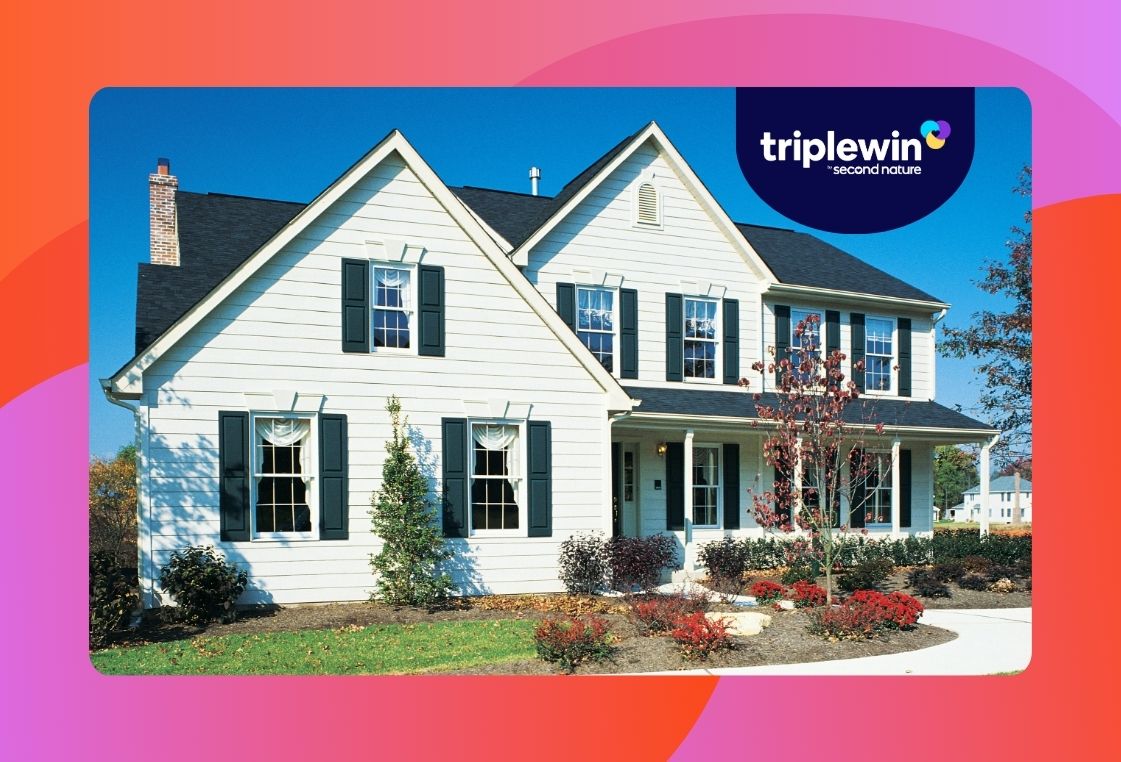Ah, rent. It's the financial fuel that keeps rental properties rolling. But what happens when that fuel line gets clogged? Even if a resident comes with a great payment history and credit, life happens. Maybe it’s a job loss, an economic slump, or even identity theft – whatever the reason, most property managers will experience lapsed rent payments at some point. For property managers, stalled rent means your clients’ property is suddenly a financial risk rather than the asset it should be.
Enter a new(ish) solution that provides a safety net for property managers and owners: rent guarantee insurance. Think of it as a stopgap for your investors in case of missed rent, leaving them financially secure while you can take your next steps thoughtfully.
Rent guarantee insurance is an owner benefit that many savvy property managers have begun to include in their suite of services to entice new investor clients. So, let's break down the rent guarantee magic. In this blog post, we'll be your tour guide through the maze and answer questions like:
- What is rent guarantee insurance, and why should you care?
- What does this type of insurance cover? When should you offer it?
- What are the limitations or risks of rent guarantee insurance?
- Who are the top providers of rent guarantee insurance in the U.S.?
This service is all about reducing risk for owners, which is a massive value proposition for any property management company to offer their clients. We’ll also talk about some measures you can take to protect residents (and, therefore, owners) beforerent delinquency becomes an issue.
We’re all about helping customers reduce risk. Here’s a great way to do it.
What is rent guarantee insurance?
Rent guarantee insurance is a type of insurance policy designed to protect property owners from financial loss caused by resident rent default. Essentially, it acts as a safety net, stepping in to cover missed rent payments for a predetermined period if a renter fails to fulfill their lease obligations.
Think of it as a financial backstop, ensuring a property’s rental income remains stable even when a tenant falls into arrears.
Let's break it down with an example: You may have a resident who passes your credit check and other screening with flying colors. But then, they experience identity theft and have their assets frozen for a certain period of time. Rent guarantee insurance would help to cover the unpaid rent while they’re getting back on their feet. In this case, it can help them stay where they are while they get their financial accounts restored – and protect your clients’ cash flow over that time.
In other scenarios, the outcome may not be quite as sunny (fully restored and still a resident!). Let’s say there’s an economic downturn, and one of your residents loses their job. While no one wants to evict a resident, you may find your hands tied. With rent guarantee insurance, you can offer your owners the peace of mind that they won’t lose money during the eviction process.
Providing services like this can set you apart from other property management companies and help drive leads.
How does rent guarantee insurance work, and who needs it?
Rent guarantee insurance is a benefit for property owners and is one option that property managers can offer their clients as part of a suite of services. It also can provide peace of mind to property managers, knowing their investors won’t be paying out of pocket if a renter stops paying.
Here’s how it works: An insurance company offers coverage for a monthly premium. As a property manager or owner, you can pay that yourself or build it into the rental cost. Then, if a renter ever stops paying rent for nearly any reason, you can file a claim with the insurance company and get that missed rent paid while the resident is still delinquent.
Rent guarantee insurance isn't a one-size-fits-all magic button for every property manager and owner. It’s most explicitly valuable for property owners who:
- Have new or unproven tenants: For first-time renters or those with limited rental history, the risk of default can be higher.
- Own multiple properties: Managing numerous rentals comes with a higher exposure to potential tenant issues. Rent guarantee insurance distributes that risk.
- Own high-value properties: The financial impact of missed rent can be particularly painful for owners of expensive properties. Rent guarantee insurance acts as a financial shock absorber.
But rent guarantee insurance can be a good idea for anyone, depending on their risk appetite.
Why is rent guarantee insurance important?
Rent guarantee insurance can be a critical way to protect your clients’ – and therefore your – financial stability. For a monthly (or yearly) premium, you can ensure peace of mind in case a resident has a significant life change, moves out suddenly, or simply fails to pay rent consistently.
This type of insurance can also take care of the hassle of following up with residents who have stopped paying and even starting the eviction process.
Whether or not you opt for rent guarantee insurance, one of the best ways to ensure you’re protected is to focus on protecting your residents’ ability to pay rent. At Second Nature, we provide support for this through our Resident Benefits Package.
Our identity protection feature ensures that if residents are ever the victim of identity theft, their missed rent payments are covered. Credit building helps ensure residents build financial security, and our renter’s insurance program helps cover other liabilities on the property side, including loss of rental income in covered scenarios.
What does the rent insurance guarantee typically cover?
Rent guarantee insurance is solely focused on protecting property owners from loss of income if a resident falls behind or defaults on rent payments. Since rent is the primary pipeline of income for a real estate investor, this is critical coverage if that kind of loss happens.
Property owner’s insurance covers damage to a property but not loss of rent. That’s why this type of insurance is unique. Rent guarantee insurance won’t cover certain scenarios, like if there is a failure on the property owner’s sign to comply with a lease or keep the property habitable.
A Note About Eviction Protection: Some services that offer rent guarantee insurance also include eviction protection, but not all do. Eviction protection specifically covers the costs of an eviction. Rent guarantee insurance may not involve an eviction at all (for example, in the case of identity theft, the resident may just suspend payments for one or two months while their finances are restored). Or, eviction costs may not be included in the rent guarantee policy.
Property managers can include both rent guarantee insurance and eviction protection in their suite of owner services.

Limitations of rent guarantee insurance
Of course, rent guarantee insurance has its limitations, just like any type of insurance. Here are a few of the limitations to consider before you decide to pay for this coverage.
- Not all residents will be approved: Insurers do just as much due diligence as you do. They likely will refuse to cover a tenant with a history of defaulting on payments or a low credit score, etc. They may have different standards than you have established for your PMC.
- Insurance may take time to kick in: Most rent guarantee policies will kick in after a full month or more of non-payment. You may be on the hook for this. However, you may be able to use the security deposit to cover this, depending on local regulations and your lease agreement.
- Premiums can be pricey: Rent guarantee insurance can cost around 5-7% of your annual rent payments. Of course, you can find ways to fold this added cost into residents’ monthly rent payments, but you will need to be conscious of whether this tarts pricing you out of the market.
- You may promise more than you can deliver: Always be careful when marketing a service as a “guarantee.” We’ve seen property managers get in trouble when they can’t deliver on a “guarantee.” You may let down owners, or you may even get in trouble from a regulatory standpoint. Nothing is 100% guaranteed, even (or especially!) with insurance.
Another risk? Thinking you can offer this yourself without an insurance license. Recently, a property manager in Texas got dinged by the Texas Department of Insurance for offering things like “pet guarantees” and “rent guarantees” without being licensed to offer insurance.
That’s why it’s important to use a real insurance provider when you decide to offer rent guarantee insurance. And that leads us to our next section: The best providers for this service right now.
Best rent guarantee insurance providers
Here are the top rent guarantee insurance carriers available right now.
1. Steady Rent
Steady Rent is geared specifically for property managers in the single-family rental space. They help property managers provide risk protection to their investors – you help them protect their rental properties, all while improving your bottom line.
They provide two services: rent advance and an owner benefits package.
Rent advance provides up to 12 months of rent payments upfront, regardless of resident payment. Property managers also receive their fees upfront. This is only available for investors working with property managers who are already partnered with Steady, and the property must meet certain requirements.
Steady’s benefit package allows owners to access the Rent Advances, as well as rent protection of up to two months of rental payments if a tenant defaults.
2. TheGuarantors
TheGuarantors focuses on rent guarantor insurance along with innovative risk management solutions for property owners, renters, brokers, and property managers. The company’s promise to residents is that they can help them get into a property they want but might not otherwise be accepted for. For investors and property managers, the promise is to reduce risk and strengthen their bottom line.
They offer rent coverage, deposit coverage, and renters insurance. The fees are paid for by residents, so it adds no cost for investors or property managers. The company also says it will step in to help work with residents who have stopped paying rent.
The downside is that some residents say the insurance comes at too high a price, and the user experience is not as good as comparable services.
3. Nomad
Nomad is another single family property management software company that focuses on a rent guarantee. Their team also helps manage the details of marketing, screening, leasing, and any issues that arise with rent payments.
The service is more applicable to self-managing landlords who need support in each step of the leasing process. The way Nomad’s process works is they manage the lease for you and pay you rent on time every month. For larger or more established property management companies, this won’t be the ideal solution as it likely won’t be flexible enough to your needs.
4. Home365
Home365 is a property management solutions company in the same vein as Nomad. They offer a “one rate” to the owner that covers rent guarantee, leasing and renewal fees, eviction fees, repairs and maintenance fees, and tenant turnover costs. They guarantee 12 months of full rent every year, with a rate subject to a deductible per incident. They have a platform for property managers and investors and a separate platform that helps residents find homes that are a good fit.
5. SureVestor
SureVestor is a "landlord insurance" brand that helps cover unexpected costs for property owners. They partner with property managers to give a discounted price on their services. Their full coverage includes Scheer Landlord Protection Insurance, which covers malicious damage up to $35,000, loss of rent coverage, eviction costs, sheriff fees, legal expenses, etc. They also offer $1M liability coverage for property managers, up to $100,000 in tenant liability coverage, and a security deposit alternative service.
6. Tenantcube
Tenantcube is a property management software solution that includes a rent guarantee in its package of services. They provide a rental management platform that helps support tenant screening, automated rent collection, lease templates, and management software.
Their rent guarantee will make up payments when a tenant stops paying up until the tenant vacates the property. You can rely on coverage for up to one year or $60,000 in covered rent. They also support reimbursement of eviction legal fees up to $1,500 and malicious damage protection up to $10,000.
Tenantcube is generally a good solution for more self-managing landlords who need support managing their properties – rather than established property management companies that need a more sophisticated solution.
7. World Insurance
World Insurance’s rent guarantee covers renters if they involuntarily lose their jobs or otherwise can’t pay rent on time. They provide up to $60,000 of guaranteed rent as well as damage protection of up to $10,000 and eviction cost coverage.
This service is geared towards renters themselves, and there are fairly high standards for who will be accepted. Approval can take a long time.
8. Insurent
Insurent is a lease guarantor company available in some parts of the U.S., including New York, New Jersey, California, and a few other states. Renters can use the service to get approval in homes they otherwise would not qualify for, as long as they meet certain criteria like creditworthiness, employment, etc.
For property managers and investors, it can support filling a property more quickly with residents who seem like good renters but might need a little extra coverage or a guarantor. This might include people like first-time renters who need to build a rental history.
9. Rent Rescue
Rent Rescue is an arm of Next Wave Insurance Service. They reimburse rental owners for up to six months of lost rental income due to nonpays, including skips or eviction, and up to three months if the default is due to a court order, military deployment, or death of a sole tenant. It is available in most states.
The idea of Rent Rescue is to close the gap between the moment that a resident stops paying rent and when you can finally resolve the issue. It’s a rent default insurance to help keep your cash flowing during this period. They also provide up to $1,000 in legal expenses to pursue eviction.




